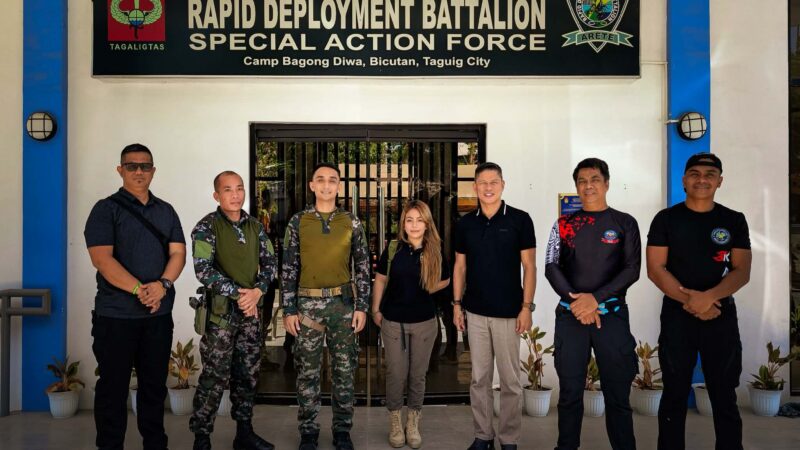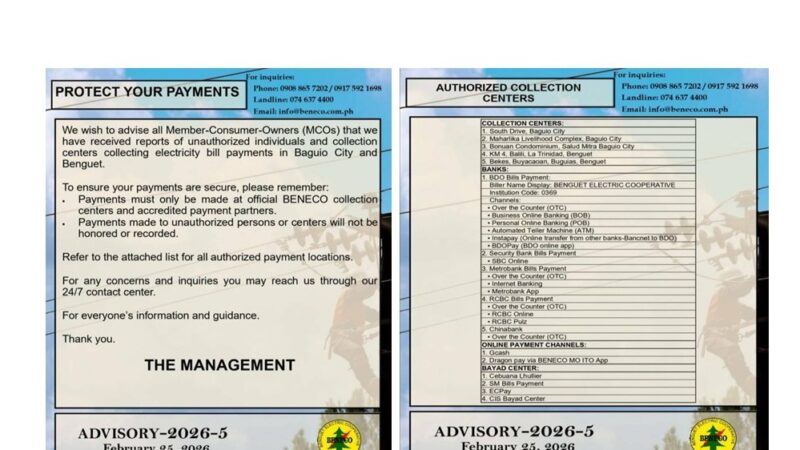City Hall to adopt circular practices in offices, events

Say goodbye to wasteful and environmentally unfriendly ways in City Hall offices and events.
The city government is set to impose a comprehensive set of Circular Economy (CE) guidelines for its offices, meetings and events to serve as a model for implementing the CE principles of sustainability, waste reduction and responsible resource management.
Mayor Benjamin Magalong said the guidelines were to form part of the proposed ordinance providing the CE or “Pansa-nopen Tayo” framework currently being studied at the city council.
“We have to walk the talk and serve as models to others in actualizing the Pansan-open principles. By doing so, we hope to spur behavioral change not only among our officials and employees but among our residents and tourists,” the mayor said.
City Planning, Development and Sustainability Office Coordinator Arch. Donna Tabangin who serves as one of the action officers of the City Circular Economy Action Team said the new policy aims to minimize waste, maximize resource efficiency and promote a culture of reuse and regeneration across all government-led and supported activities.
“Through this, we can incorporate CE in our office procedures and practice CE as an office, as an organization and as individuals,” she said.
Designing Events for Sustainability
At the core of the guidelines is the principle of “circular thinking,” which encourages planners to design events that eliminate waste from the start.
Organizers are urged to set measurable sustainability goals such as achieving at least an 80 percent waste diversion rate and to adopt digital invitations and programs in place of printed materials.
Venues and suppliers with proven circular practices, including energy-efficient systems and partnerships with local farmers, are to be prioritized.
Greener Procurement and Material Use
The city is also shifting away from single-use and disposable items. The directive emphasizes the use of reusable, repairable and recyclable products discouraging decorative items like balloons and ribbons that generate unnecessary trash. Offices and event organizers are encouraged to rent or reuse items such as cutlery, furniture and signage and to purchase materials made from recycled or upcycled content.
To further reduce waste, the guidelines call for the elimination of disposable giveaways and the promotion of useful digital tokens or sustainable alternatives. Partnerships with local suppliers and entrepreneurs are likewise encouraged to support circular supply chains and reduce transportation emissions.
Zero Waste and Material RecoveryUnder its waste management provisions, the city directs all offices and event venues to install clearly labeled waste sorting stations for recyclables, compostables, and residuals. Organizers must also conduct pre- and post-event waste audits to assess performance and identify areas for improvement.
Unavoidable waste is not to be discarded outright; instead, the guidelines encourage upcycling and donation options for leftover materials, equipment, and food.
Sustainable Food and Catering Practices
Food service is another major focus of the circular approach. The policy calls for local, seasonal, and plant-based menus, reusable serving ware, and the complete ban on single-use plastic bottles and cups.
Drinks should be served through dispensers, with aluminum cans as a secondary option.
Organizers are instructed to plan realistic portion sizes to reduce food waste and to partner with food rescue organizations for surplus redistribution. Composting food scraps is also highly encouraged.
Energy, Water and Transport Efficiency
The guidelines further promote the selection of venues that utilize renewable energy, LED lighting and natural ventilation. Water refill stations must be installed to discourage bottled water use, while remote and virtual participation options are encouraged to reduce travel-related emissions.
To minimize the carbon footprint of events, the city encourages attendees to use public transport, bicycles, or carpooling and to support the transition to electric vehicles where possible.
Building Awareness and Measuring Impact
The guidelines stress the importance of education and communication. Offices and event organizers are asked to display signage explaining sustainability measures and to share success stories, such as the amount of waste diverted or emissions avoided.
To ensure continuous improvement, the city will monitor key performance indicators (KPIs) including waste diversion rates, resource reuse percentages, and CO₂ emissions reduced. Post-event reviews and feedback sessions will help refine the policy over time.
“Closing the Loop” for a Sustainable Baguio
The guidelines also include recommended circular economy practice statements—ready-to-use messages that can be placed on event invitations, posters, and signages to promote participation in Baguio’s zero-waste advocacy.
“Together we close the loop — for Baguio, for the environment, for future generations,” one of the sample statements reads.
The mayor said the implementation is intended for expansion eventually to cover all government agencies and private establishments. – Aileen P. Refuerzo






